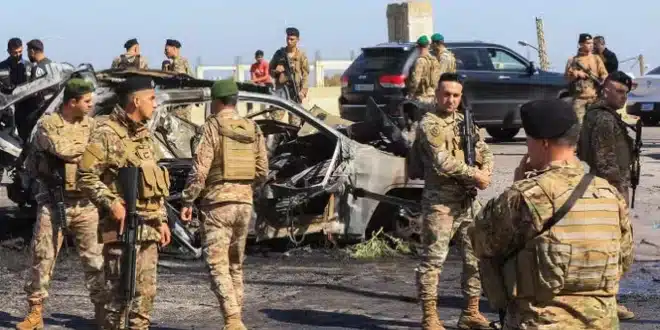Phased Disarmament Plan for Hezbollah Could Be Proposed in Anticipated Talks with Lebanese Presidency
A structured approach to disarming Hezbollah may emerge as part of future discussions between Lebanese President Joseph Aoun and the organization’s leadership, according to a report published on Monday. The proposed framework reportedly outlines a phased, geographically based strategy that would dismantle Hezbollah’s military infrastructure region by region, rather than by weapon type.
The initiative, which would require political consensus and operational coordination, is expected to be introduced once formal and substantive negotiations between the presidency and Hezbollah begin. It is being positioned as an alternative to a disarmament strategy based on weapon classification, which would prioritize heavy, followed by medium and light arms.
South Litani to Lead in Demilitarization Effort
The proposed plan prioritizes the South Litani region, an area that has witnessed extensive military activity in past confrontations between Hezbollah and Israel. The report indicates that most of Hezbollah’s arms depots and military sites in this region have already been neutralized through Israeli airstrikes and military operations. Additionally, the Lebanese Army is said to have regained control of roughly 80 percent of the area, making it the most feasible starting point for the disarmament process.
The South Litani zone falls under United Nations Security Council Resolution 1701, which mandates that no armed forces other than the Lebanese Army and United Nations peacekeepers operate south of the Litani River. The region’s strategic relevance and the progress already made in reducing Hezbollah’s presence there contribute to its selection as the initial focus for disarmament.
Sequential Progression to Other Strategic Zones
Following the South Litani phase, the disarmament process would reportedly move northward to the North Litani region. In this area, the Lebanese Army has so far seized only a limited number of Hezbollah facilities—seven military sites and depots, according to the report. This zone, while less critical than the South in terms of past conflict, remains significant due to its geographic proximity to other operational zones.
The third target in the proposed sequence would be the southern suburbs of Beirut and adjacent neighborhoods. These urban areas serve as the central hub of Hezbollah’s political and military command. Disarmament in these zones is expected to present complex challenges, given the symbolic and strategic importance of these locations to the group’s leadership structure.
Finally, the Bekaa Valley is identified as the concluding region in the disarmament sequence. The Bekaa has long functioned as a logistical corridor and weapons storage hub for Hezbollah. Its terrain and relatively decentralized population have made it a less accessible area for security enforcement, suggesting that demilitarization here would be more protracted and require advanced coordination.
Alternative to Caliber-Based Disarmament
The outlined geographic approach is being considered as a more practical and politically sensitive alternative to a disarmament method based on weapon caliber. Under a caliber-based strategy, heavy weapons would be surrendered first, followed by medium and light arms. However, such a model risks immediate confrontation and may be harder to implement uniformly across multiple zones.
By contrast, the region-by-region framework aims to align with local security dynamics and existing levels of Lebanese Army control. This method could potentially reduce friction and allow the government to build trust incrementally across different regions.
Although the proposal remains unofficial and subject to political developments, its emergence signals the potential for renewed internal dialogue around Hezbollah’s weapons. Implementation, if pursued, would likely depend on domestic consensus and broader regional stability.


